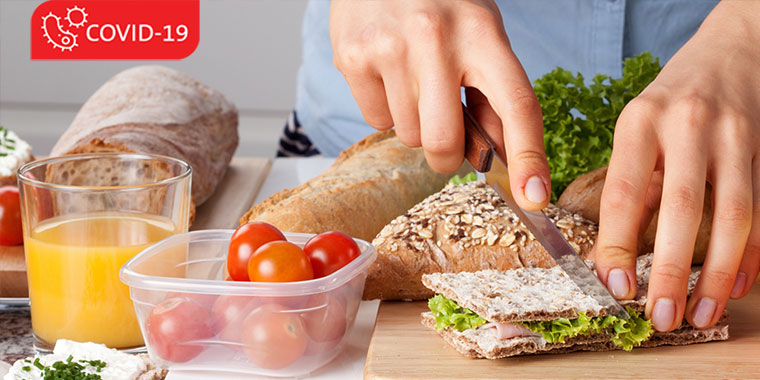Power Up Your Immunity With Good Nutrition

Find Your Perfect Match
Answer a few questions and we'll provide you with a list of primary care providers that best fit your needs.
To give your body’s immune system a fighting chance against coronavirus COVID-19, you need to eat well. Good nutrition and good health go hand-in-hand.
To learn the best way to support immunity during this pandemic, we asked Premier Health dietitian Meredith Jones, RDN, LD, for recommendations on how to keep our bodies in top-notch shape.
“Just like you need adequate fuel in the gas tank for your car to run, you need to make sure your body has enough of the essential vitamins and minerals it needs to fight off infections and bounce back,” Jones says.
There is no one specific food that can protect you from the coronavirus. Instead, your body needs a variety of healthy foods, plus exercise, rest and low levels of stress to bolster its immune response.
“This is not the time to sit on the couch and eat ice cream and pizza,” Jones says. “If you are lacking in any essential vitamins or minerals, your body will suffer.”
To keep your immunity working properly and ready to fight disease, follow these daily guidelines from Jones:
- Consume fiber, whole grains, and yogurt for prebiotics and probiotics
- Drink plenty of water to stay hydrated
- Eat lean proteins, which help your body build antibodies to fight a virus
- Eat at least three cups of vegetables and two cups of fruit to get your vitamins and minerals. If you can work in more fruits and vegetables, great!
If you’re working from home and also managing online learning for your children, you may have limited time for cooking. Take time to plan ahead for healthy meal prep.
You can involve your children in meal planning and cooking while also teaching lessons in math, reading, science, and writing. Here’s how:
- Math. Count out the numbers of ingredients, understand measuring spoons and cups, take stock of pantry items, plan how long it will take to prepare, cook, eat, and clean up a meal.
- Reading/Writing. Ask your kids to make a list of items in the pantry and refrigerator. Have them search your cookbooks or online for recipes that use the ingredients you have on hand. Make a list of breakfast, lunch, and dinner meal ideas to make together.
- Science. As you bake bread, cook an egg, or create a homemade salad dressing, search online for descriptions of the science behind the recipes. You can all learn about why ingredients change when they are combined, heated, or blended.
Finally, remember to give yourself a break, too. There’s nothing wrong with the occasional take-out order [link to https://www.premierhealth.com/your-health/articles/healthnow/take-care-with-your-take-out-order]. Just keep it healthy.
Find Your Perfect Match
Answer a few questions and we'll provide you with a list of primary care providers that best fit your needs.
Source: Meredith Jones, RDN, LD, Premier Health dietitian; American Society for Nutrition; Wall Street Journal; CNN,





